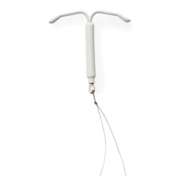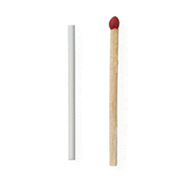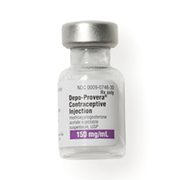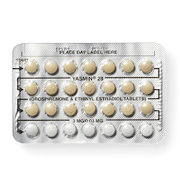Birth control and breast cancer: Breaking down the research
We're taking a closer look at a new study that links hormonal birth control and breast cancer.

In recent weeks, you may have heard about research that sheds light on the potential risks of hormonal birth control. While we know there are major health benefits associated with birth control beyond pregnancy prevention, there has been a lot of news about studies that suggest there may be risks, including one study finding an association between birth control use and suicide risk. Another recent study published in the New England Journal of Medicine used similar methods to investigate the relationship between using hormonal contraception and the risk of developing breast cancer. Drawing on a sample of 1.8 million Danish women age 15 to 49, researchers compared women who reported using hormonal birth control (a combination of both estrogen and progestin) to women who relied on other types of non-hormonal methods (e.g., condoms, diaphragm, copper IUD, rhythm method, etc.). The study filtered out all women who had been diagnosed with cancer, experienced blood clots, or who had ever received treatments for infertility.
Danish registries gave researchers access to information on hormonal birth control use, breast-cancer diagnoses, and other relevant factors (such as education, family history of breast or ovarian cancer, reports of polycystic ovary syndrome and endometriosis, etc.). The researchers found that there were 11,517 reported cases of breast cancer among the 1.8 million women included in the study over the course of nearly 11 years. Compared to women who reported never using hormonal birth control, the relative risk of developing breast cancer was nearly 20% greater for women who reported using hormonal methods. Even after discontinuing the use of hormonal contraceptives, the researchers found that women who had used hormonal contraceptives for 5 years or longer had a higher risk of developing breast cancer than those who used non-hormonal methods.
Although the relative risk sounds high, it’s significantly less jarring when you examine it closely. Researchers estimate that for every 100,000 women, the use of hormonal birth control resulted in an additional 13 cases of breast cancer annually. This means that there were 68 cases of breast cancer for hormonal contraceptive users compared to 55 cases for non-hormonal contraceptive users. Furthermore, the relative risk of developing breast cancer is fairly low among young women. Age has been shown to be one of the biggest risk factors—as you age your overall risk of breast cancer increases. So, while there may be an increased risk of breast cancer associated with the use of hormonal birth control, the overall risk is quite low for young women in their peak reproductive years.
While this study does appear to raise concern about the potential risk factors associated with modern hormonal contraceptives, it is important to note that this study did not rule out the possibility that the association between birth control use and breast cancer may be due to other lifestyle choices like alcohol consumption and physical activity. In fact, it’s possible that the unintended benefits of birth control, like the reduction of ovarian and endometrial cancer, may outweigh the small increase in overall risk of breast cancer, especially for young women.
The bottom line is that although all types of medication—including birth control—have side effects, the benefits of hormonal birth control may outweigh some of the potential risks. For those of you who may be interested in exploring forms of non-hormonal contraceptives, there are an array of options including the copper IUD, condoms, diaphragm, and various fertility awareness methods that all offer protection against unplanned pregnancy when used accurately and consistently.
How do you feel about this article?

Heat up your weekends with our best sex tips and so much more.






